
Dakar: The Vibrant Heart of Senegal
Welcome to the Dakar Region, the bustling capital of Senegal, where African tradition meets modernity. This coastal city is known for its lively culture, historical significance, and stunning Atlantic Ocean views. Dakar is a melting pot of music, art, and cuisine that will captivate your senses from the moment you arrive. Explore the historic Île de Gorée, a UNESCO World Heritage site that serves as a moving reminder of the transatlantic slave trade. Wander through its cobblestone streets, visit the House of Slaves, and take in the serene views of the ocean. For a more contemporary experience, Dakar's vibrant nightlife offers everything from live music at local clubs to upscale dining with a twist of Senegalese flavors. Don't miss the African Renaissance Monument, the tallest statue in Africa, which offers panoramic views of the city and the ocean. The bustling markets, such as Marché Sandaga, provide an authentic shopping experience where you can find local crafts, textiles, and delicious street food. Dakar’s beautiful beaches, like Plage de N'Gor and Plage de Yoff, are perfect for relaxing or enjoying water sports. Whether you're a history buff, a foodie, or an adventure seeker, Dakar has something to offer. Its rich cultural heritage and vibrant urban life make it a must-visit destination in West Africa.
Local tips in Dakar Region
- Visit Île de Gorée early in the morning to avoid crowds and heat.
- Always negotiate prices at local markets; it’s part of the shopping experience.
- Try traditional Senegalese dishes like Thieboudienne and Yassa for an authentic culinary experience.
- Use taxis or ride-sharing apps for convenient and safe transportation around the city.
- Carry cash, as not all places accept credit cards, especially in local markets and smaller establishments.
Dakar: The Vibrant Heart of Senegal
Welcome to the Dakar Region, the bustling capital of Senegal, where African tradition meets modernity. This coastal city is known for its lively culture, historical significance, and stunning Atlantic Ocean views. Dakar is a melting pot of music, art, and cuisine that will captivate your senses from the moment you arrive. Explore the historic Île de Gorée, a UNESCO World Heritage site that serves as a moving reminder of the transatlantic slave trade. Wander through its cobblestone streets, visit the House of Slaves, and take in the serene views of the ocean. For a more contemporary experience, Dakar's vibrant nightlife offers everything from live music at local clubs to upscale dining with a twist of Senegalese flavors. Don't miss the African Renaissance Monument, the tallest statue in Africa, which offers panoramic views of the city and the ocean. The bustling markets, such as Marché Sandaga, provide an authentic shopping experience where you can find local crafts, textiles, and delicious street food. Dakar’s beautiful beaches, like Plage de N'Gor and Plage de Yoff, are perfect for relaxing or enjoying water sports. Whether you're a history buff, a foodie, or an adventure seeker, Dakar has something to offer. Its rich cultural heritage and vibrant urban life make it a must-visit destination in West Africa.
When is the best time to go to Dakar Region?
Iconic landmarks you can’t miss
African Renaissance Monument
Discover the African Renaissance Monument, a striking symbol of cultural pride in Dakar, offering breathtaking views and rich historical insights.
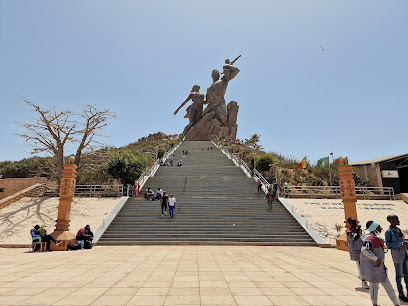
Hann Zoological Park
Explore Hann Zoological Park in Dakar, the unique wildlife haven where conservation meets family fun and educational adventures.
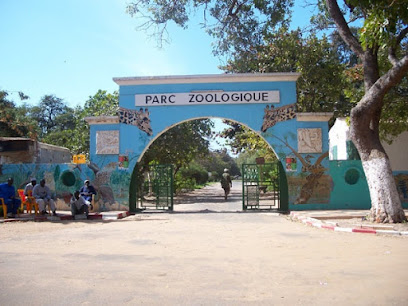
Bandia Reserve
Explore Bandia Reserve, a captivating wildlife refuge in Senegal, offering breathtaking views and unforgettable encounters with nature's wonders.
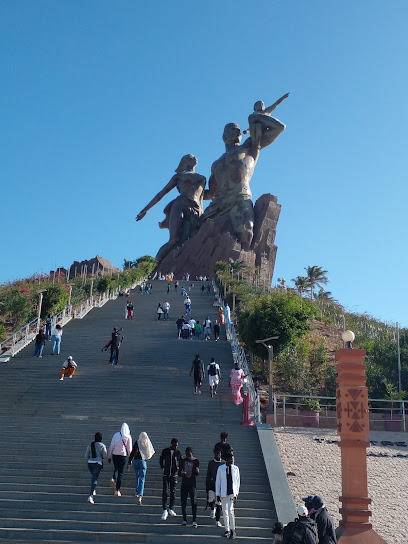
Place du Souvenir Africain
Discover the heart of Dakar at Place du Souvenir Africain, where history, culture, and stunning views converge in a tribute to African resilience.
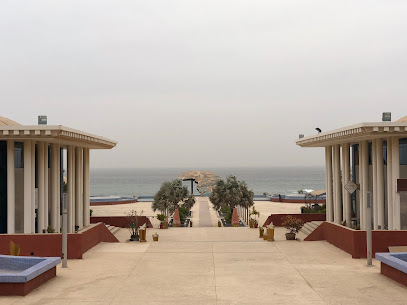
House of Slaves
Discover the poignant history of the transatlantic slave trade at the House of Slaves on Gorée Island, a UNESCO World Heritage site in Dakar.
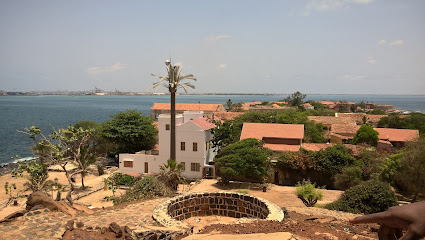
Magic Land
Experience the excitement of Magic Land in Dakar, a premier amusement park offering thrilling rides and delightful attractions for the whole family.
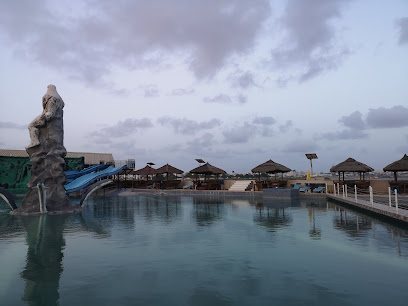
Phare des Mamelles
Discover the vibrant culinary and cultural scene at Phare des Mamelles, where stunning views meet delicious flavors in the heart of Dakar.
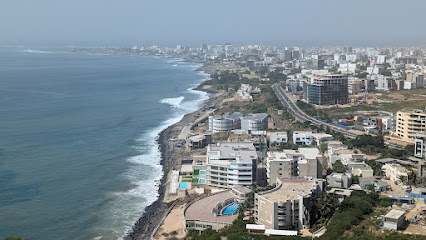
Mosque of the Divinity
Explore the stunning Mosque of the Divinity, a magnificent symbol of faith and cultural heritage in Dakar, Senegal, perfect for tourists and architecture enthusiasts.
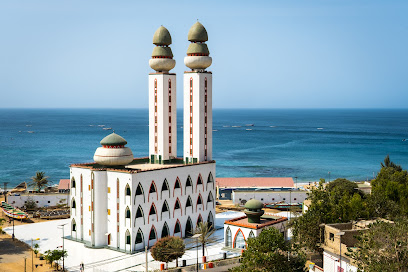
Grand Mosque of Dakar
Discover the Grand Mosque of Dakar, the largest mosque in Senegal, where stunning architecture meets rich cultural heritage in the heart of the capital.
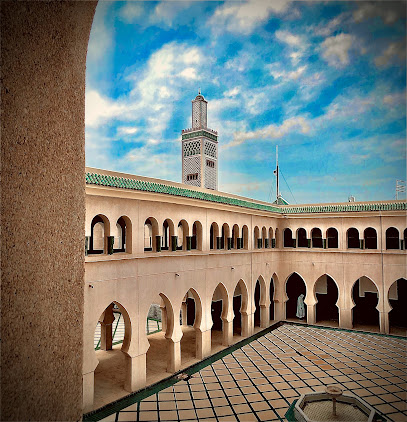
Cathedral of Our Lady of Victories
Discover the architectural splendor and cultural significance of the Cathedral of Our Lady of Victories in the heart of Dakar, Senegal.
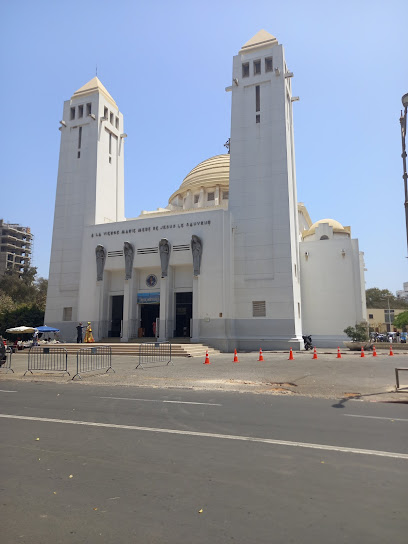
IFAN Historical Museum
Discover Senegal's rich cultural heritage at the IFAN Historical Museum in Dakar, showcasing the artistry and history of West Africa.
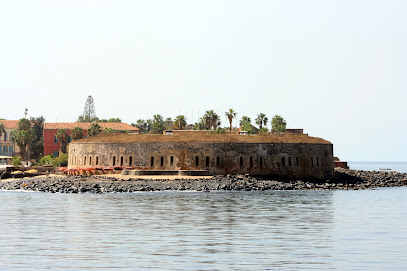
Monument du Millénaire
Explore the Monument du Millénaire in Dakar, a stunning historical landmark celebrating Senegal's vibrant culture and heritage.
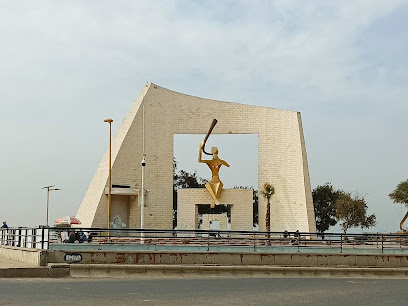
Loman Art House - Art Gallery
Discover the vibrant art scene at Loman Art House in Dakar, where creativity meets culture in a stunning gallery and café experience.
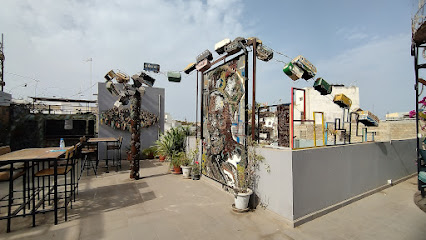
Djoudj National Bird Sanctuary
Explore Djoudj National Bird Sanctuary: A UNESCO World Heritage Site and a paradise for birdwatchers in Senegal, hosting over 300 species of birds.
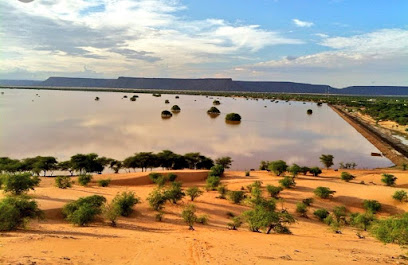
Mémorial Gorée-Almadies
Explore the poignant history at Mémorial Gorée-Almadies, a tribute to resilience and remembrance on Gorée Island, Dakar.
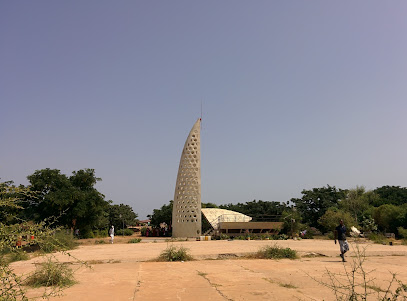
Unmissable attractions to see
Hann Zoological Park
Explore the enchanting Hann Zoological Park in Dakar, where wildlife meets education in a stunning natural setting.
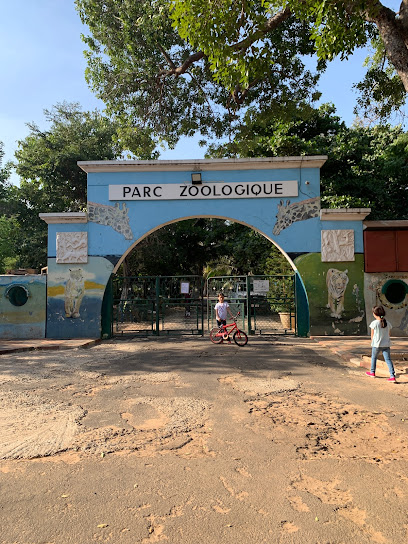
Plage BCEAO
Experience the vibrant atmosphere and breathtaking sunsets at Plage BCEAO, Dakar’s serene public beach, perfect for relaxation and adventure.
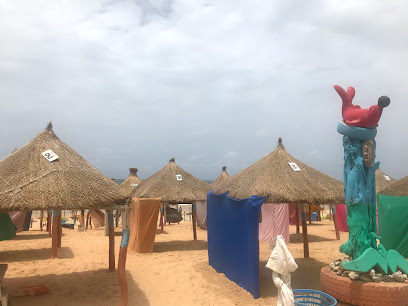
Phare des Mamelles
Experience breathtaking views and delicious cuisine at Phare des Mamelles, a unique restaurant and cultural gem in Dakar, Senegal.
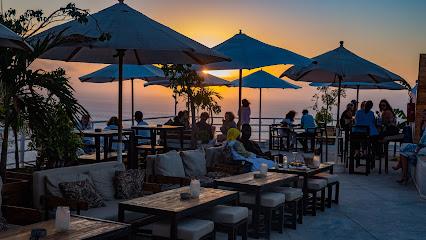
Casino Du Port
Experience the vibrant nightlife and thrilling gaming at Casino Du Port, the heart of entertainment in Dakar, Senegal's capital.
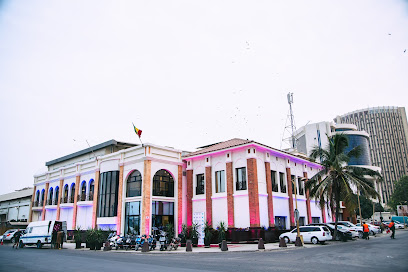
The Tortoise Village
Explore The Tortoise Village, a serene national reserve in Senegal dedicated to tortoise conservation and wildlife education, perfect for nature-loving tourists.
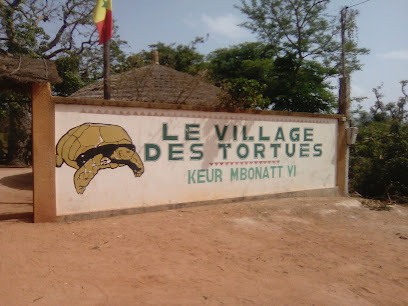
IFAN Museum of African Arts
Explore the IFAN Museum of African Arts in Dakar for a captivating journey through Africa's artistic heritage and cultural diversity.
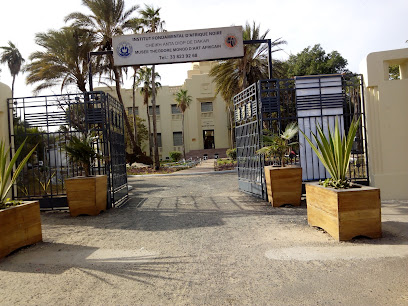
Loman Art - B&B - Gallery
Experience the vibrant art scene and comfortable hospitality at Loman Art, a unique bed & breakfast and gallery in Dakar, Senegal.
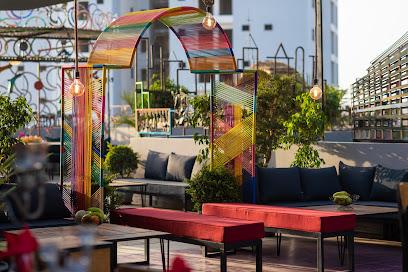
Village Des Arts
Explore the vibrant art scene at Village Des Arts in Dakar, where creativity and culture flourish in every brushstroke and sculpture.
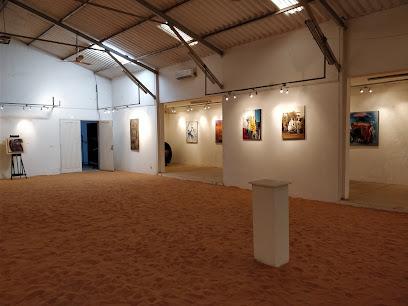
Corniche Ouest
Experience the breathtaking coastal views and vibrant atmosphere of Corniche Ouest, a must-visit tourist attraction in Dakar, Senegal.
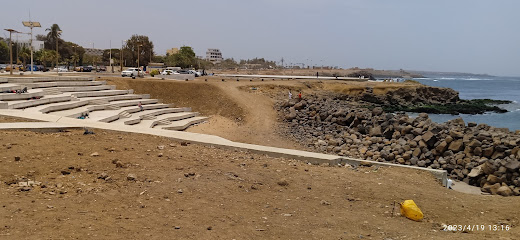
Galerie Arte
Discover the artistic soul of Dakar at Galerie Arte, a cultural haven showcasing local talent and creativity through stunning art and handicrafts.
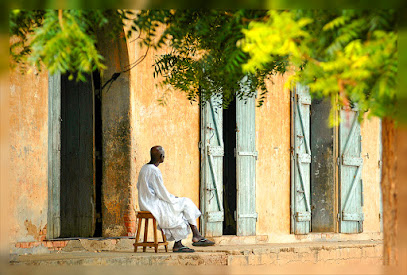
Travelwithziggy
Explore Mamelles Cité Mbackiyou in Dakar, a serene tourist attraction offering stunning coastal views and rich local culture.
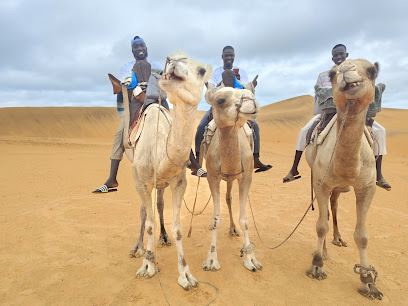
Yoff Fishing wharf
Discover the vibrant local culture at Yoff Fishing Wharf, a lively hub of fishing, community, and tradition in Dakar, Senegal.
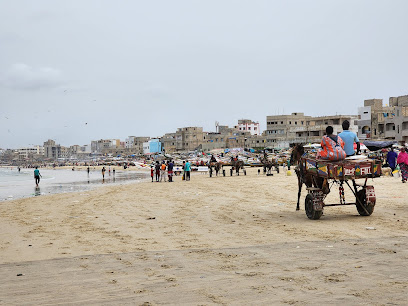
The Westernmost point of Afro-Eurasia (Europe, Africa and Asia)
Explore the breathtaking Westernmost point of Afro-Eurasia in Dakar, where Europe, Africa, and Asia meet in a stunning geographical wonder.
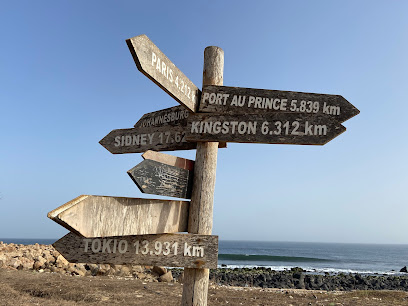
Sogui Tours Senegal
Explore the vibrant beauty of Senegal with Sogui Tours, your gateway to unforgettable adventures in Mbour's stunning landscapes.
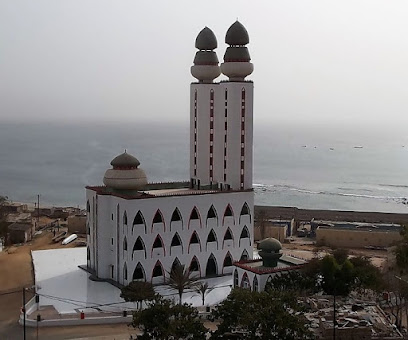
Promenade
Discover the beauty and charm of Dakar's Promenade, a scenic waterfront pathway perfect for strolls, local culture, and breathtaking ocean views.
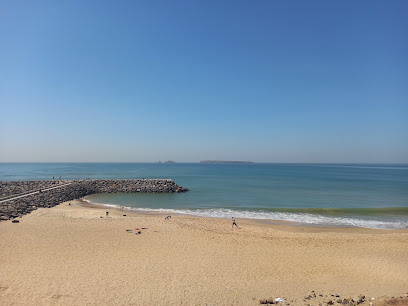
Essential places to dine
Restaurant le BAZOFF
Discover culinary delights at Restaurant le BAZOFF in Grand Dakar, where vibrant flavors meet a lively atmosphere for an unforgettable dining experience.
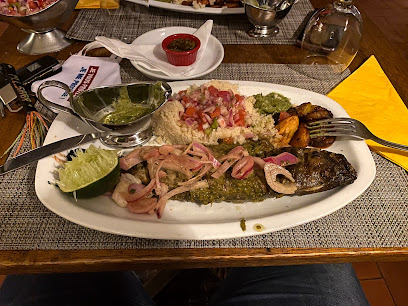
Restaurant Le Lagon 1
Experience exquisite cuisine and stunning ocean views at Restaurant Le Lagon 1 in Dakar, where every meal is a celebration of flavors.
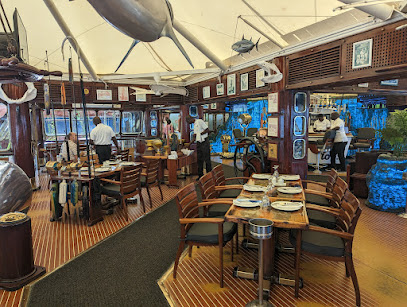
Restaurant La Pointe des Almadies
Discover exquisite seafood and authentic Senegalese cuisine with breathtaking ocean views at Restaurant La Pointe des Almadies.
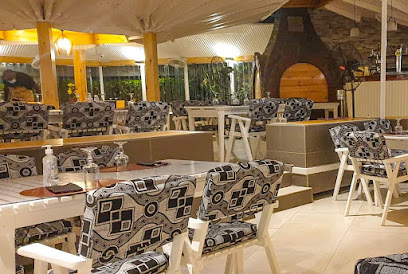
The Seoul Restaurant 2.0
Discover authentic African cuisine at The Seoul Restaurant 2.0 in Dakar – where flavors come alive in a vibrant atmosphere.
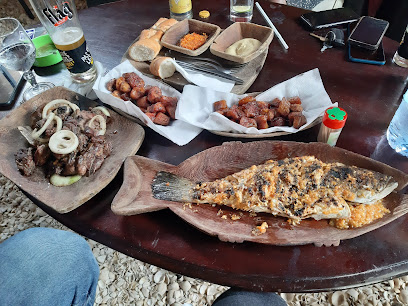
La pampa
Savor authentic Argentinian cuisine at La Pampa in Dakar - where every dish tells a story of tradition and flavor.
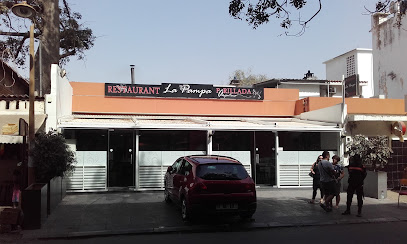
Restaurant Le N'Gor Pieds dans l'Eau
Experience exquisite seafood dining with stunning ocean views at Restaurant Le N'Gor Pieds dans l'Eau in Dakar.
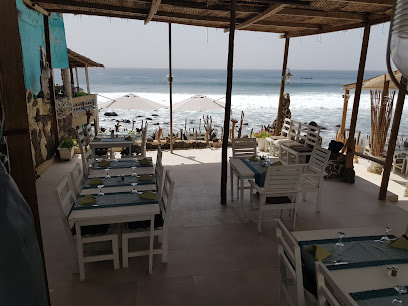
Noflaye Beach
Experience sun-soaked relaxation and culinary delights at Noflaye Beach in Dakar - where stunning ocean views meet delicious crepes.
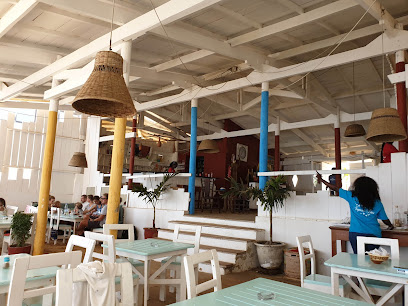
Alkimia
Experience exquisite Senegalese cuisine with breathtaking ocean views at Alkimia in Dakar's vibrant Ngor district.
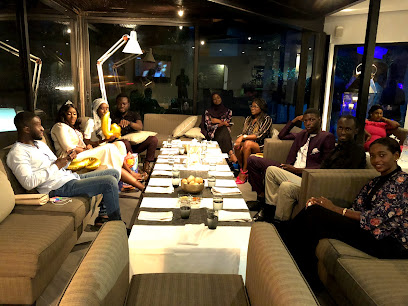
Le Cabanon Dakar
Experience authentic Senegalese cuisine at Le Cabanon Dakar with stunning ocean views and a warm atmosphere perfect for every occasion.
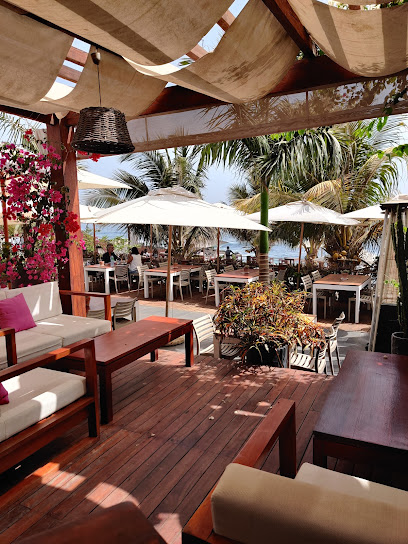
La Fourchette
Discover culinary excellence at La Fourchette in Dakar - where local flavors meet international cuisine in an unforgettable dining experience.
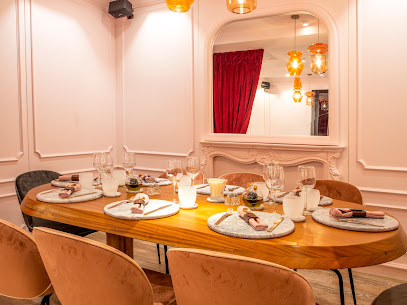
Restaurant Chez Loutcha
Experience authentic Senegalese cuisine at Restaurant Chez Loutcha in Dakar - where every dish tells a story.
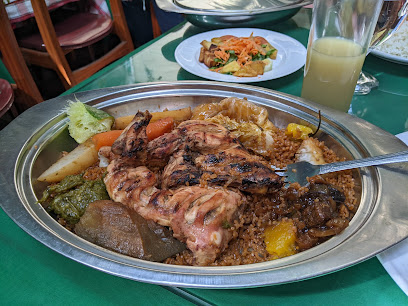
La Cabane du Pêcheur
Experience exquisite seafood at La Cabane du Pêcheur in Ngor, Dakar – where every meal is a celebration of Senegal's rich maritime flavors.
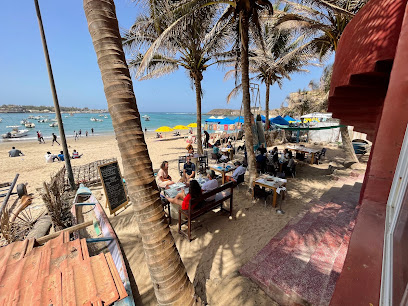
La Mer à Table
Experience culinary excellence at La Mer à Table - where fresh seafood meets stunning ocean views in Dakar's Almadies.
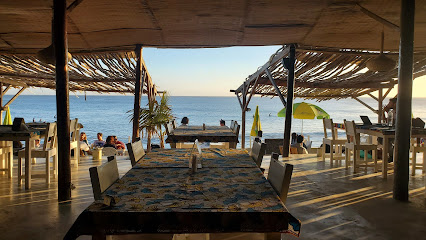
Beluga restaurant
Discover the exquisite flavors of Senegal at Beluga Restaurant in Dakar, where local cuisine meets international elegance.
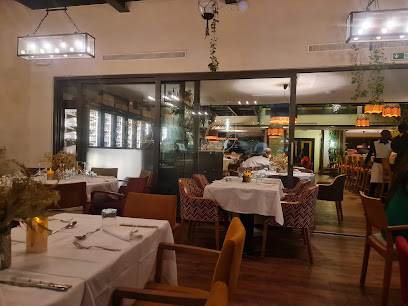
Restaurant Le Carré Dakar
Experience vibrant dining at Restaurant Le Carré Dakar – where delicious brunch meets exquisite cocktails in a stunning coastal setting.
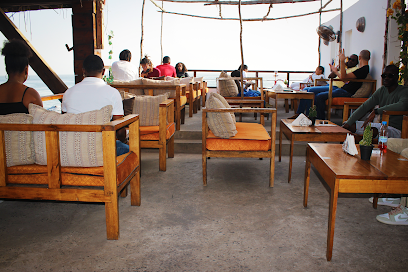
Markets, malls and hidden boutiques
Superdeals - American Store in Dakar, Senegal
Explore Superdeals in Dakar for a unique selection of American groceries and beauty products that bring a taste of home to Senegal.
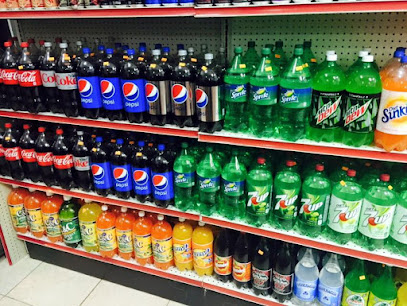
Kiabi
Explore Kiabi in Dakar for stylish, affordable clothing for the entire family, from trendy maternity wear to chic children's outfits.
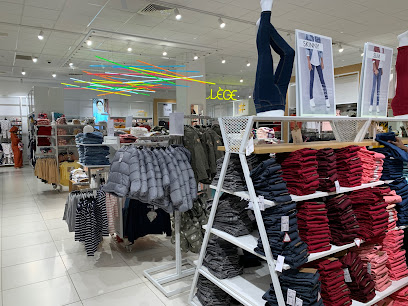
Marathon Boutique
Explore unique local fashion and crafts at Marathon Boutique, where Dakar's vibrant culture comes alive in every piece.
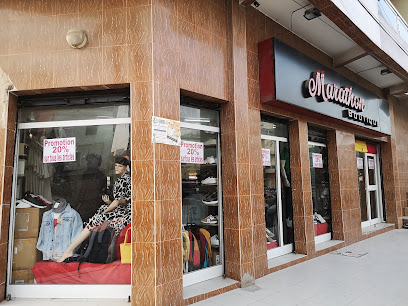
Sénégal Free Store
Explore the vibrant flavors of Senegal at Sénégal Free Store, where local culture meets culinary delight in the heart of Dakar.
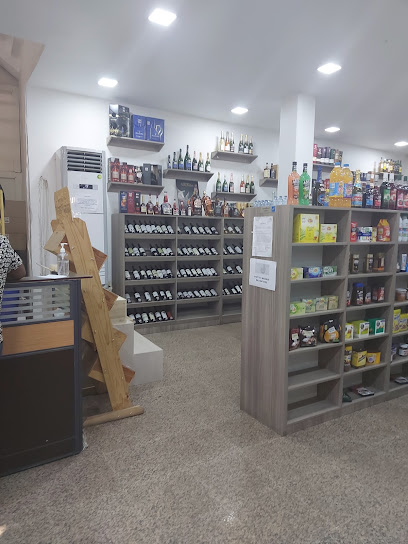
MANGO
Explore the latest women's fashion at MANGO, a stylish clothing store in Dakar that offers trendy apparel and a vibrant shopping experience.
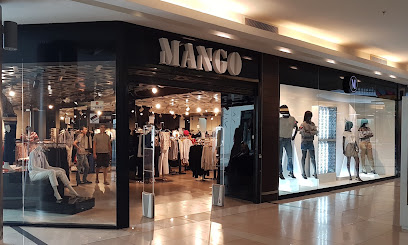
Nahyel - Boutique de Cadeaux Dakar
Explore Dakar's vibrant culture through unique gifts and handcrafted treasures at Nahyel - Boutique de Cadeaux.
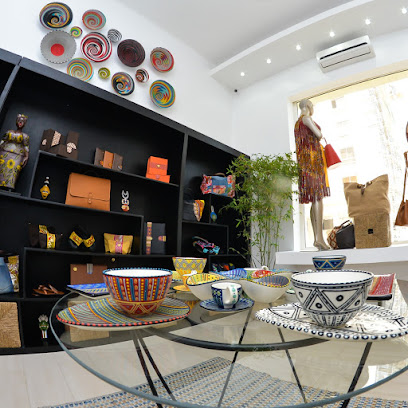
La surprise
Explore the vibrant arts and crafts at La Surprise, a charming home goods store in Dakar, reflecting the rich cultural heritage of Senegal.
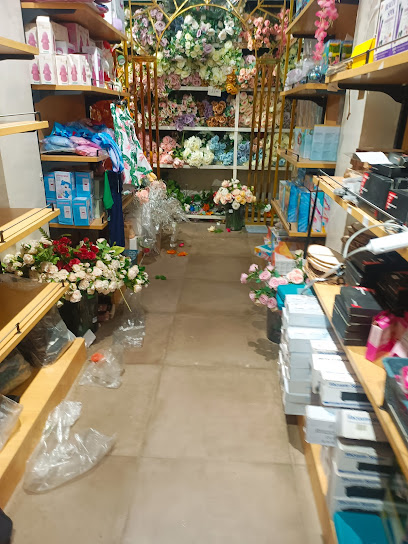
boutique Sope Serigne Babacar Sy
Explore Boutique Sope Serigne Babacar Sy in Dakar for unique clothing that captures the essence of Senegalese culture and craftsmanship.
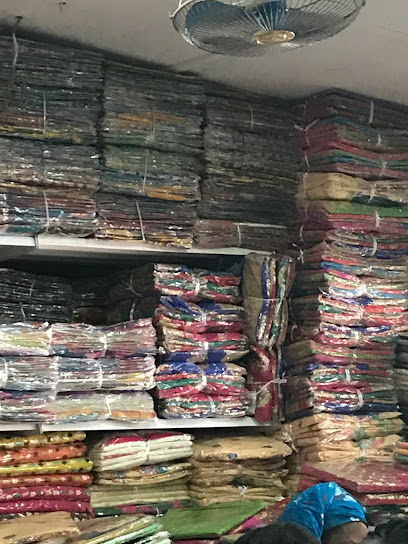
Maison 123
Discover chic women's fashion at Maison 123 in Dakar's Sea Plaza, featuring stylish apparel that blends local culture with contemporary trends.
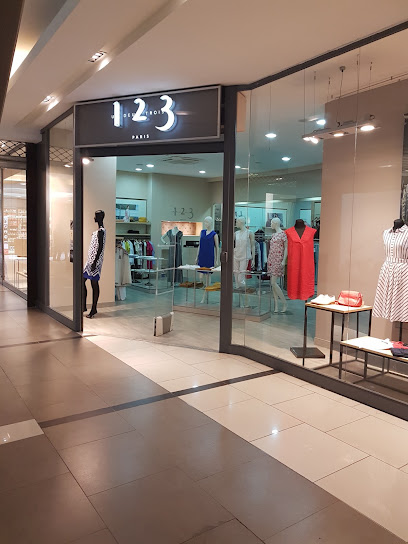
Kalsoum shop
Discover the essence of Senegalese fashion at Kalsoum Shop, a vibrant boutique in Dakar offering unique dresses and local style.
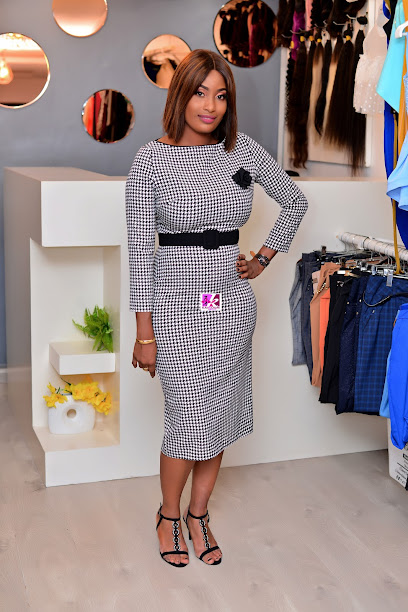
Hypermarché exclusive
Explore Hypermarché Exclusive in Dakar for unique gifts and authentic Senegalese crafts that reflect the rich culture and artistry of the region.
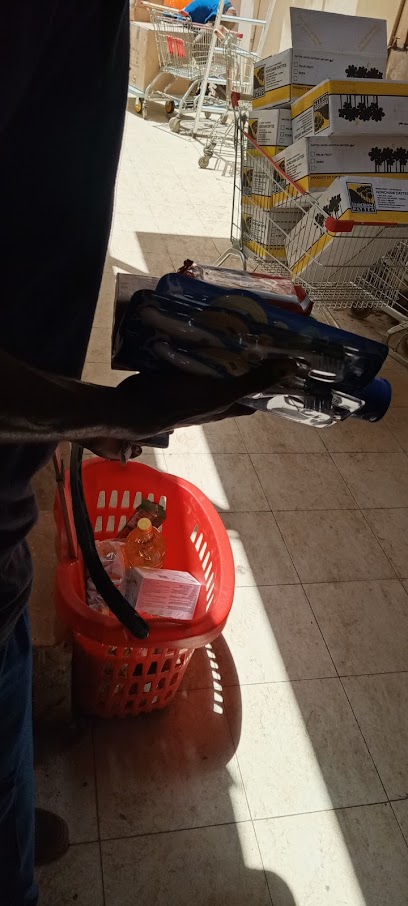
Rue de la Mode - Dakar
Discover the essence of Dakar's fashion at Rue de la Mode, where style meets culture in a vibrant shopping environment.
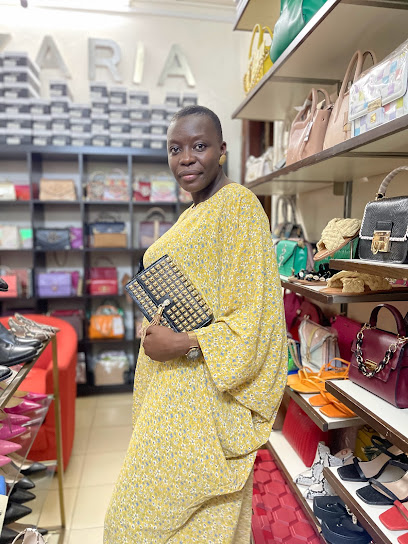
In Africa
Explore Dakar's vibrant fashion scene at this boutique offering unique ready-to-wear pieces that celebrate Senegalese culture and artistry.
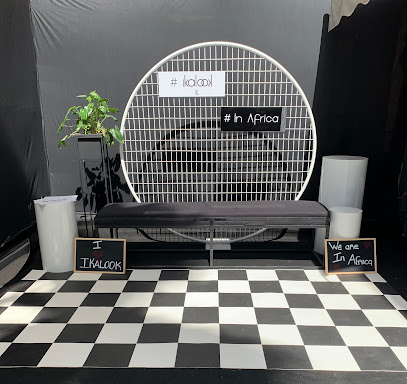
Arka Concept Store
Explore the vibrant Arka Concept Store in Dakar for unique gifts and local treasures that celebrate Senegal's rich culture.
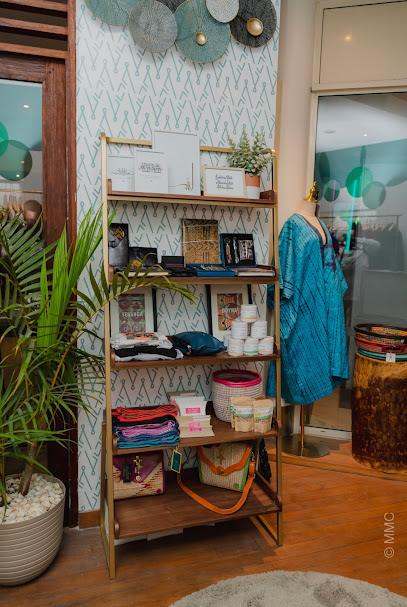
Costard Boutique Dakar
Explore the vibrant fashion scene at Costard Boutique Dakar, where local artistry meets contemporary style in the heart of Senegal.
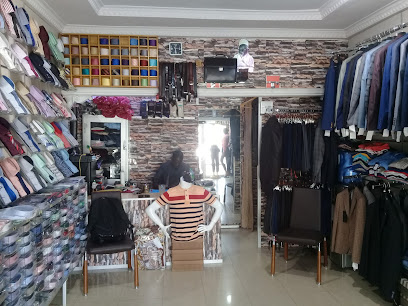
Essential bars & hidden hideouts
L'Adresse
Experience the essence of Dakar at L'Adresse, where luxury dining meets breathtaking views and local flavors in a stunning atmosphere.
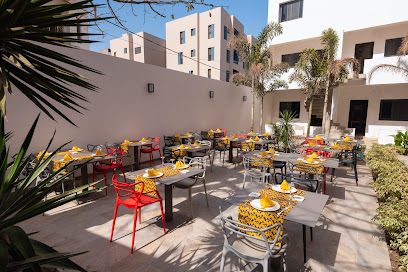
Restaurant le BAZOFF
Discover the lively atmosphere and diverse menu at Restaurant le BAZOFF in Grand Dakar, where local flavors meet international cuisine.
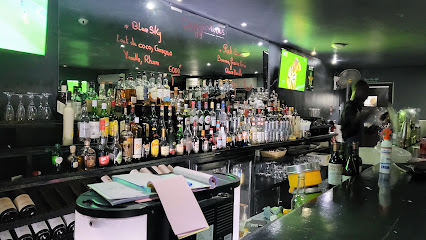
Restaurant J’Go Dakar
Experience the vibrant culinary scene of Dakar at Restaurant J’Go, where traditional flavors meet modern lounge vibes in Ngor.
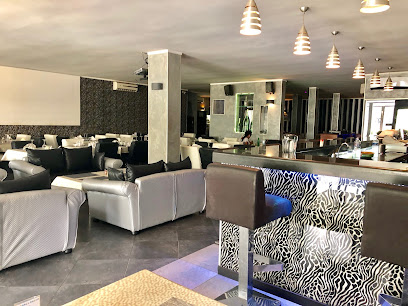
Restaurant Le Carré Dakar
Discover the vibrant culinary scene of Dakar at Restaurant Le Carré, featuring exquisite brunches and crafted cocktails in a stunning coastal setting.
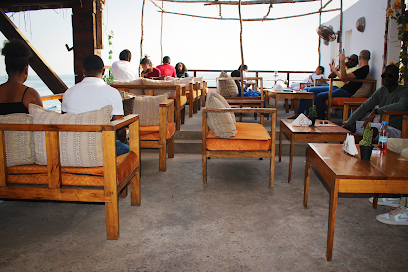
Cosmo Beach Club
Discover the perfect blend of relaxation and nightlife at Cosmo Beach Club, Dakar's premier lounge destination with stunning ocean views.
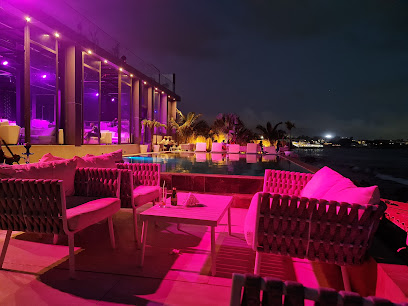
impérial Bar, brasserie et restaurent
Discover the vibrant atmosphere and delightful flavors at L'Impérial Bar, Dakar's culinary hotspot for local and international cuisine.
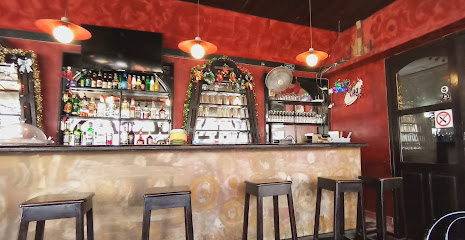
Le Jovial
Discover Le Jovial, a vibrant bar in Dakar offering refreshing drinks, local flavors, and a lively atmosphere for an unforgettable experience.
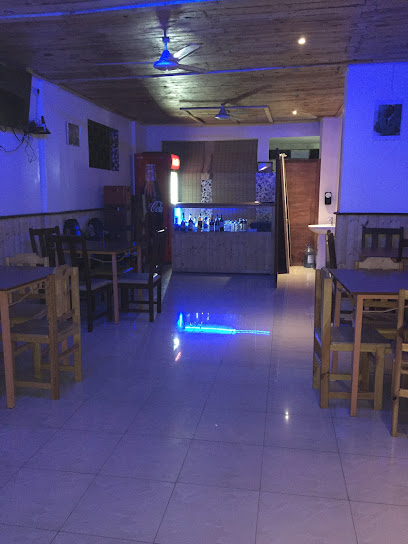
Club Restaurant LE PATIO
Discover the lively atmosphere and delectable cuisine at Club Restaurant LE PATIO, a premier night club in Dakar's vibrant Almadies district.
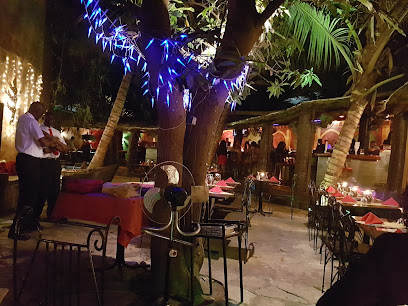
LA CAVE
Discover the exquisite wine experience at La Cave in Dakar, where sophistication meets a cozy ambiance and exceptional flavors await.
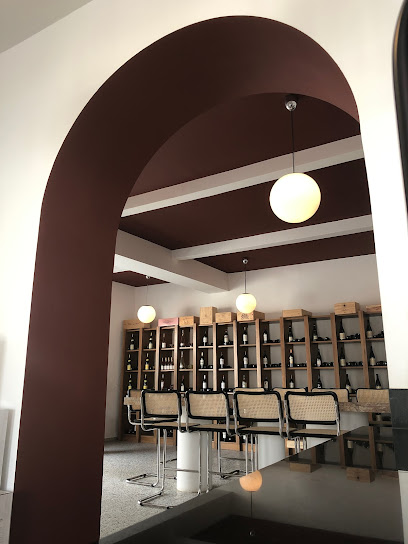
Kraken Pub
Discover the lively Kraken Pub in Dakar, where great drinks and vibrant atmosphere create unforgettable nights.
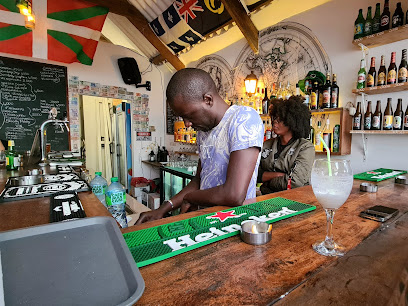
Seven 7
Discover the lively spirit of Jaxaay-Parcelle-Niakoul Rap at Seven 7 Bar, where great drinks and vibrant energy await every visitor.
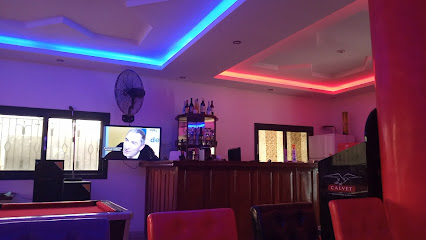
Le Thiossane
Experience the vibrant nightlife of Dakar at Le Thiossane, where music, dance, and culture unite for an unforgettable evening.
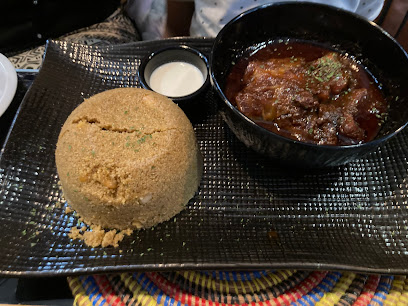
Pieds Tanqués Social Club
Discover a lively bar experience at Pieds Tanqués Social Club in Dakar, featuring darts, delicious tapas, and a vibrant atmosphere.
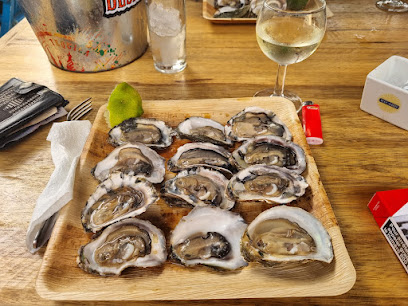
Chez Kriss - Bar Restaurant Auberge
Experience the vibrant atmosphere and delightful local cuisine at Chez Kriss, your go-to bar and restaurant in Keur Massar.
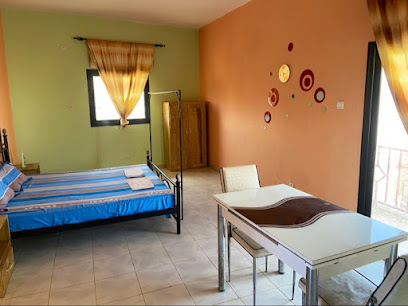
Local Phrases about Dakar Region
-
- HelloSalaam aleikum
[sah-lahm ah-lay-koom] - GoodbyeBa beneen
[bah beh-neen] - YesWaaw
[wah-oh] - NoDéedéet
[day-dayt] - Please/You're welcomeJërëjëf
[je-reh-jef] - Thank youJërëjëf
[je-reh-jef] - Excuse me/SorryBa beneen
[bah beh-neen] - How are you?Nopp laa?
[nop lah] - Fine. And you?Jaam rek. Nopp?
[jahm rehk. nop?] - Do you speak English?Nopp tey?
[nop teh?] - I don't understandDafa neexul
[dah-fah neh-hool]
- HelloSalaam aleikum
-
- I'd like to see the menu, pleaseNopp laa menu, jërejëf
[nop lah meh-noo, je-reh-jef] - I don't eat meatDafa gëna nyaay
[dah-fah geh-nah nyah-ay] - Cheers!Njuul!
[nyool] - I would like to pay, pleaseNopp laa bay, jërejëf
[nop lah bahy, je-reh-jef]
- I'd like to see the menu, pleaseNopp laa menu, jërejëf
-
- Help!Ndank
[ndah-k] - Go away!Yomb
[yohmb] - Call the Police!Dawal la gendarmerie!
[dah-wahl lah jehn-dahr-meh-ree] - Call a doctor!Dawal loo bokk
[dah-wahl loh bok] - I'm lostDama neexul
[dah-mah neh-hool] - I'm illDama xëy
[dah-mah khay]
- Help!Ndank
-
- I'd like to buy...Nopp laa xarit...
[nop lah kah-reet...] - I'm just lookingDafa wone
[dah-fah woh-neh] - How much is it?Ñoom bi ci?
[nyohm bee chee?] - That's too expensiveMangi ci yowu
[mahn-gee chee yaw-woo] - Can you lower the price?Doomu tur yowu?
[doh-moo toor yaw-woo]
- I'd like to buy...Nopp laa xarit...
-
- What time is it?Wàññi xew?
[wahn-yee khew] - It's one o'clockXew bi màndi
[khew bee mahn-dee] - Half past (10)Ñaar bu (10)
[nyar boo (10)] - MorningSuba
[soo-bah] - AfternoonKër gi
[kehr gee] - EveningNder
[n-dehr] - YesterdayXale yi
[khah-leh yee] - TodayXalis
[khah-lees] - TomorrowBukk jëm
[book jehm] - 1Benn
[benn] - 2Jëf
[jef] - 3Jàpp
[jahp] - 4Nëgg
[negg] - 5Juróom
[joo-room] - 6Jëkkër
[jek-ker] - 7Njëtt
[nyet] - 8Ñett
[nyet] - 9Juroo jëf
[joo-roo jef] - 10Fukk
[fook]
- What time is it?Wàññi xew?
-
- Where's a/the...?Waar...?
[wahr] - What's the address?Wàññi ko jog?
[wahn-yee koh johg] - Can you show me (on the map)?Doomu defal ma la (sos xëwe)?
[doh-moo deh-fahl mah lah sos khuh-weh] - When's the next (bus)?Wàññi leen...
[wahn-yee lehn] - A ticket (to ....)Billet (ci ...)
[bee-yay (chee)]
- Where's a/the...?Waar...?
History of Dakar Region
-
The Dakar Region, located on the westernmost tip of the African continent, has a rich history that dates back thousands of years. The area was initially inhabited by various indigenous groups, including the Lebou people, who established fishing communities along the coast. Archaeological findings indicate the presence of ancient settlements, highlighting the region's long-standing significance as a hub of human activity.
-
Islam began to spread throughout the region in the 11th century, brought by Berber traders and missionaries from North Africa. The adoption of Islam had a profound impact on the culture and social structure of the region, leading to the establishment of Islamic institutions and the integration of Islamic practices into daily life. This period also saw the rise of local Islamic leaders and the construction of mosques, some of which still stand today.
-
The Dakar Region played a significant role in the Atlantic Slave Trade from the 15th to the 19th centuries. The island of Gorée, located off the coast of Dakar, became a notorious center for the trade, where enslaved Africans were held before being shipped across the Atlantic. The Maison des Esclaves (House of Slaves) on Gorée Island remains a poignant reminder of this dark chapter in the region's history, now serving as a museum and UNESCO World Heritage Site.
-
Dakar became an important administrative center during the French colonial period, beginning in the mid-19th century. The French established Dakar as the capital of French West Africa, constructing significant infrastructure, including roads, railways, and public buildings. This era also saw the introduction of Western education and the blending of French cultural influences with local traditions. The legacy of French colonialism is still evident in Dakar's architecture and urban layout.
-
Senegal gained independence from France on April 4, 1960, with Dakar becoming the capital of the newly sovereign nation. The post-independence period was marked by efforts to modernize the city and develop its infrastructure. Dakar grew rapidly, becoming a vibrant metropolis and a key political, economic, and cultural center in West Africa. The city hosted several significant events, including the First World Festival of Negro Arts in 1966, which celebrated African culture and heritage.
-
Dakar is a melting pot of cultures, reflecting the diverse ethnic groups and traditions of Senegal. The region is renowned for its vibrant music scene, particularly the Senegalese genre of Mbalax, popularized by artists like Youssou N'Dour. The Dakar Biennale, or Dak'Art, is a major contemporary art exhibition that attracts artists and visitors from around the world. Additionally, the annual Saint-Louis Jazz Festival and the Dakar Fashion Week highlight the city's dynamic cultural landscape.
-
Today, Dakar is one of the most important economic centers in West Africa. The city's port is a critical gateway for trade, and its economy is bolstered by industries such as fishing, textiles, and tourism. Urban development projects have transformed Dakar's skyline, with modern buildings and infrastructure projects aiming to accommodate the growing population. Despite these advancements, the city continues to grapple with challenges such as traffic congestion and housing shortages.
Dakar Region Essentials
-
Dakar, the capital of Senegal, is well-connected internationally. The Blaise Diagne International Airport (DSS) is the primary gateway for international travelers. It is located approximately 40 kilometers from the city center. From the airport, you can take a taxi, airport shuttle, or rental car to reach your destination in Dakar. Various airlines operate direct flights to Dakar from major cities in Europe, Africa, and the Middle East.
-
Dakar has a variety of transportation options. Taxis are widely available and relatively inexpensive; however, it's advisable to negotiate the fare before starting your journey. The city's public transportation system includes buses, minibuses (known as 'car rapides'), and the newer Dakar Dem Dikk buses. For a more local experience, you can also use motorcycle taxis ('moto-taxis'). Renting a car is another option, though driving in Dakar can be hectic due to traffic and road conditions.
-
The official currency in Senegal is the West African CFA franc (XOF). Credit cards are accepted in many hotels, restaurants, and larger shops, but it's advisable to carry cash for smaller establishments and markets. ATMs are widely available in Dakar, especially in the city center and tourist areas. It's also useful to carry smaller denominations of cash, as change for larger bills may not always be available.
-
Dakar is generally a safe city for tourists, but it's important to exercise caution. Petty crime, such as pickpocketing and bag-snatching, can occur, particularly in crowded areas like markets, bus stations, and tourist attractions. Areas such as Sandaga Market and the Corniche can be hotspots for such activities. Avoid walking alone at night, and keep your belongings secure. Always use registered taxis and avoid displaying valuables in public.
-
In case of an emergency, dial 17 for police, 18 for fire, and 15 for medical emergencies. Dakar has several hospitals and clinics, including the Hôpital Principal de Dakar and Clinique de la Madeleine, which offer good medical services. It's advisable to have travel insurance that covers medical emergencies. For minor health issues, pharmacies are available throughout the city and can provide over-the-counter medications.
-
Fashion: Do dress modestly. While Dakar is relatively liberal, it's respectful to avoid overly revealing clothing, especially in religious or rural areas. Religion: Do respect local customs and traditions. Senegal is predominantly Muslim, so it's courteous to dress modestly and avoid public displays of affection. Public Transport: Do be patient and respectful. Public transport can be crowded and busy. Don't eat or drink on buses or minibuses. Greetings: Do greet people with a handshake and a friendly 'As-salamu alaykum' (Peace be upon you). Eating & Drinking: Do try local dishes like Thieboudienne and Yassa. Don't refuse food or drink when offered, as it is considered impolite.
-
To experience Dakar like a local, visit the bustling markets such as Marché Kermel and Marché Sandaga, where you can buy fresh produce, textiles, and crafts. Engage with the locals; Senegalese people are known for their 'Teranga' (hospitality) and are often willing to share stories and tips. Don't miss out on the vibrant music scene, which includes genres like Mbalax. For a unique experience, visit Île de Gorée, a UNESCO World Heritage site, and take a stroll along the Corniche for stunning ocean views.
Trending Landmarks in Dakar Region
-
African Renaissance Monument
-
Hann Zoological Park
-
Bandia Reserve
-
Place du Souvenir Africain
-
House of Slaves
-
Magic Land
-
Phare des Mamelles
-
Mosque of the Divinity
-
Grand Mosque of Dakar
-
Cathedral of Our Lady of Victories
-
IFAN Historical Museum
-
Monument du Millénaire
-
Loman Art House - Art Gallery
-
Djoudj National Bird Sanctuary
-
Mémorial Gorée-Almadies
Nearby Cities to Dakar Region
-
Things To Do in Thiès
-
Things To Do in Mbour
-
Things To Do in Kaolack
-
Things To Do in Bakau
-
Things To Do in Serekunda
-
Things To Do in Serrekunda
-
Things To Do in Banjul
-
Things To Do in Saint-Louis
-
Things To Do in Lamin
-
Things To Do in Brikama
-
Things To Do in Gunjur
-
Things To Do in Farafenni
-
Things To Do in Soma
-
Things To Do in Janjanbureh
-
Things To Do in Canchungo













